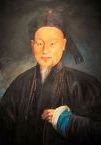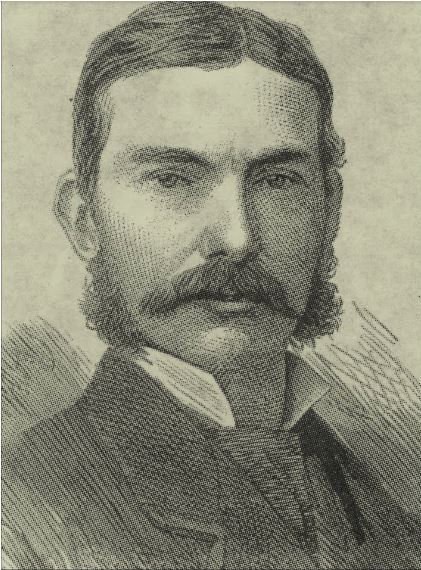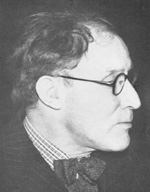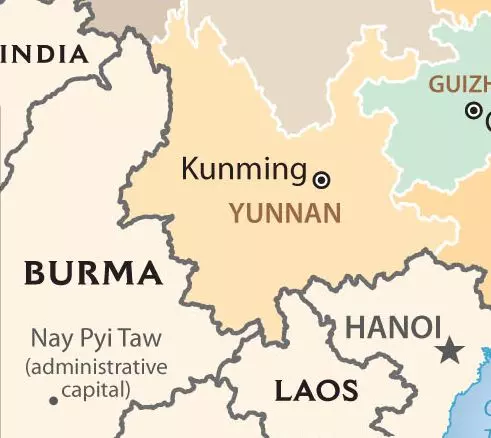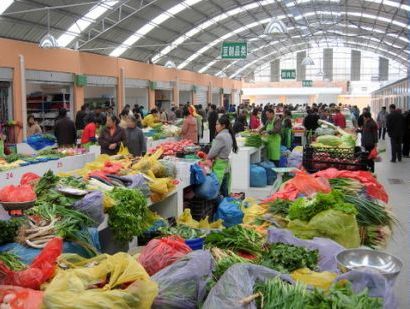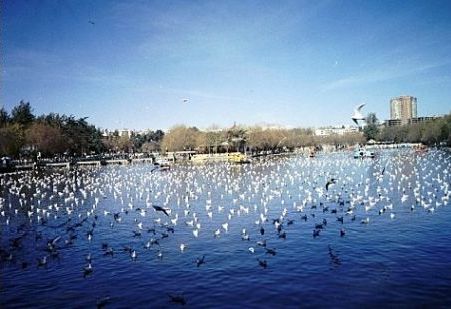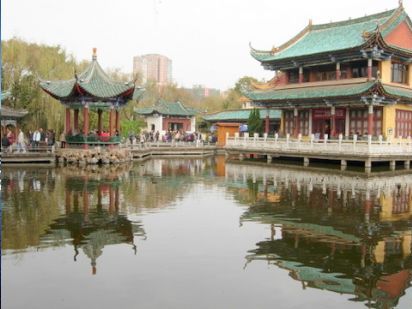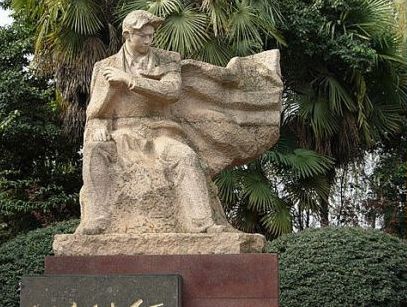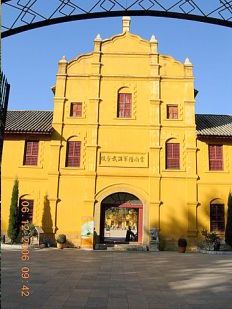Green Lake: Reflections from the Surface of China
2/ Through Chinese Eyes
![]() ommissioner Lin, though to some degree forgotten or slighted by the West, is one of the most famous figures in Chinese history -- as that history is learned by the Chinese themselves. Commissioner Lin was the mandarin sent by the emperor to Canton (now Guangzhou) in 1839 to deal with the problem of opium. Commissioner Lin ended up here in Yunnan province, a high irony: the man sent from command central to eradicate opium ultimately, after the battle is lost, superintends the province which has perhaps the greatest poppy fields in the empire.
ommissioner Lin, though to some degree forgotten or slighted by the West, is one of the most famous figures in Chinese history -- as that history is learned by the Chinese themselves. Commissioner Lin was the mandarin sent by the emperor to Canton (now Guangzhou) in 1839 to deal with the problem of opium. Commissioner Lin ended up here in Yunnan province, a high irony: the man sent from command central to eradicate opium ultimately, after the battle is lost, superintends the province which has perhaps the greatest poppy fields in the empire.
I encountered the commissioner in a remarkable book which I discovered not long after coming to Yunnan. When, after many circumambulations of Green Lake, I started to pursue reading about China, as well as walking about in it, I thought it would be good to start at the beginning. I found and read a number of books that open on scenes thousands of years old (the "oracle bones," containing the earliest Chinese ideographs, date from 3,700 BC) and then proceed all the way up to present times; broad overviews, of course, but very good ones. I also read a work which had been recommended to me many years previously by a close friend who is Korean, Three Kingdoms, one of the Four Great Classical Novels of Chinese literature. My friend gave me the 1925 translation, the only one available at the time; those volumes just sat on my bookshelves, however, back home. Now in China I found and read the 1991 translation by Moss Roberts of the full text which was republished in 1995 in three volumes by China's Foreign Languages Press.
It is a terrific read, fiction but drawn from historical events of AD 220-280. Warlord against warlord, and continual waring, Cao Cao, who lends his name to the Chinese equivalent of "Speak of the Devil;" master strategist and Taoist Zhuge Liang (more later); Three Heroes of the Peach Garden Oath; Lu Bu, mightiest of warriors, seduced by devious Diaochan, one of China's Four Great Beauties; Battle of Red Cliff; the Empty Fort Strategy. Sound interesting?
Increasingly, though, I began to be fascinated by what is sometimes called the "opening up" of China which began with the Opium Wars (1839-42 and 1856-1860). Pursuing that, I came upon Lin and the man who brought him to us Westerners, Arthur Waley, in that remarkable book, The Opium War Through Chinese Eyes. It helped also that, in the end, Lin had a connection to Yunnan and that like our family he had come from outside the province's borders.
As my reading increased, there ultimately seemed to be a direct connection between this opening-up of China through war to a period which began to fascinate me even more. That is the period which began with what might be called the Rise of Fascism in the East, up through China in the Second World War and its civil war which followed. I was impressed to learn that Yunnan had a significant role in this period, and by now connection to Yunnan had become my theme. To my astonishment, I in fact found a group of books, all Yunnan-connected, that truly belong in the Library of America, right up there with Thoreau and Parkman, Henry Adams and Raymond Chandler. These books are not only compelling in their own right, but important documents in the history of the gigantically important relationship between America and China. Much more about these will follow. But first we have Lin and Waley.
* * *
Arthur Waley is one of the most famous figures in the history of the study of the East by the West. He lived from 1889 to 1966. Cambridge graduate, English Jew, toiler in the Asian art department of the British Museum, friend of T.S. Eliot and Ezra Pound, he became -- and remains, many would say -- the premier translator of Chinese poetry into English. He also became -- and remains -- the premier translator of Japanese poetry into English. (Waley wrote as well as translated poetry, some of it anthologized by his contemporaries).
I have a friend who has a friend who once came up to Waley at a conference and spoke to him in Mandarin. Waley replied that he did not speak Chinese. This was possibly true, as he never visited either China or Japan. (He did visit the continent before WW1 and learned French, German, and Spanish).
Although his forte was poetry, he was eventually so successful that he undertook the translation of other standard works, including the Analects of Confucius and The Tale of the Genji by Lady Murasaki. His translations met with success. He found that he no longer needed his job at the BM, folded his tent there, and for the rest of his life lived off the earnings of his publications. He wrote one history book that I know of. It was about commissioner Lin.
The events described in Waley's book were so significant for the history not only of China and the West's relation to China, but for the whole of the 19th century, that they were preserved in wax. Waley opens with an extract from the 1845 edition of Madame Tussaud's catalogue which describes an exhibition featuring commissioner Lin "and his favorite consort" "dressed in magnificent Chinese costumes, lately imported." (Would that these figures and costumes were still in existence, buried in some storeroom, waiting to be rediscovered, dusted off, and put on display once again!)
Waley’s purpose is to use Lin’s own diary, published in 1955, to make the commissioner seem not a wax figure but a living person. (Waley’s book was published in 1958).
* * *
Waley begins by telling us that Lin Tse-hsu (now Lin Zexu) was born in 1785, the son of a "needy scholar, who never attained to any official position." This scholar's son came 7th of 237 candidates in the finals held in Peking for those who had managed to succeed in a number of fiercely competitive local examination contests. His success in Peking entitled him to further his already vast knowledge at the Han-lin Academy, and he was ordered to learn Manchu, the language of the rulers of China since 1644.
Governor-general of Hupeh (Hubei) and Hunan was the position to which he rose even before he was fifty. But in December of 1838 the emperor ordered him to go to Canton to deal with the opium problem. This seems to have been due to the "painstaking" memorandum he submitted to the emperor, along with those submitted by others at his level, on how to deal with this problem. The chief virtue of this memorandum appears to have been the analysis it gave of how deep the problem in fact was. It was not a simple matter of William Jardine and other Englishmen selling some opium to some Chinese opium addicts (in fact Jardine was a Scot, but no matter). A complicated commercial web was involved. There were, for example, rich and influential Chinese wholesalers who bought the opium shipped in and the retailers to whom they sold. Proprietors of opium dens purchased from retailers and then sold to the opium smokers. All had an interest in keeping the trade going, as did those who made bamboo stems and porcelain bowls and metal fittings for the opium pipes. Then there were the people who supplied goods to the English ships and the ships whose services were hired by the English; they became a particular focus of Lin's efforts when he actually put his plans into action. Lin went beyond all this, as a top performer would, to include also six pages on plant medicines that could be used to combat addiction.
The result was that he became "High Commissioner, with Plenipotentiary Powers, and supreme command of Canton's naval forces."
Waley notes that Lin viewed the English as prevaricators and had good reason to do so. In 1832, when Lin was governor of Kiangsu, the Canton office of the East India Company sent a ship to probe the Chinese coast for further markets for opium, despite the fact that it would have to be smuggled in in violation of Chinese laws restricting trade to Canton. Bad weather forced the ship into a local harbor where the captain maintained that they were coming from Calcutta, making their way to Japan. In fact, the captain had circulated a leaflet which "completely gave the lie" to this story. It was in Chinese ("of sorts", Waley cannot help adding), not in Japanese. Moreover, it said they were looking for "fresh outlets for trade on the Chinese coast," as Waley puts it. A false name for the ship was given, so that when Chinese officials protested to British authorities in Canton, these authorities could maintain that no such ship was on their lists -- adding, no doubt (here I interpolate), that perhaps it was Portuguese or American.
When Lin departed Peking, he thus knew that one of his main tasks would be to deal with what Waley calls "the complications of European mentality." The first pages describe this journey, the journey of a high official on an imperial mission. The entourage is elaborate, though not ostentatious, and the surprise is the number of proscriptions placed upon it in the official pass Lin was provided with. Lin is not to be
accompanied by any subordinate officials, clerks or secretaries. His personal staff consists of one outrider and six men-at-arms, a chief cook and two kitchen-men . . . no member of his staff is being left behind at the last place of halt or sent on ahead. Anyone falsely representing himself as member of his staff will at once be apprehended and tried.
Moreover, although twenty bearers carry the litter in which he travels, they are hired at his own expense, and he pays also for the two large luggage carriers and stretcher. The drivers and carriers are paid enough to purchase provisions for themselves, but they are not allowed to requisition anything along the way. When water transport is necessary Lin is to pay for the boat and crew out of his own pocket.
He is to realize that his journey imposes a burden upon the cities, towns and relay-stations through which he passes, and he must show them every possible consideration. At Government rest-houses he is only to take the ordinary, daily fare. On no account is he to be served with an elaborate repast or a menu containing costly items such as fried swallows' nests, which might seem to give a sanction to extravagance.
(Here I think Waley's powers of translation may have failed him, for the nests belong to Swifts, not to Swallows).
His escort, bearers and so on are not allowed to accept gratuities of the kind known as post-fees or door-purses. Any case of such gratuities being demanded will lead to immediate arrest and anyone found guilty of secretly offering them must without fail be made the subject of a special inquiry.
These proscriptions, Waley explains, were the result of a reform movement launched after the death of the emperor Ch'ien Lung in 1799.
* * *
Lin's diary begins on February 14, 1839, at a point fifty miles south of the Yangtze River.
Today at dawn, it being the first of the New Year, I reverently set out an incense-altar on board ship, kowtowed in the direction of the Palace at Peking and wished the Emperor a Happy New Year. Then I bowed to the shades of my ancestors and made offerings.
Ten days later he is issuing orders for the arrest of a number of well-known opium offenders. Most of these had worked for the Government at one time or another, and some still did. He arrived in Canton on March 10 and immediately posted two notices, the first restricting his staff to the office and instructing them to take no free meals, the second stating that he was concerned only with import and export and that petitions on these matters only would be received.
He next sent the emperor a report and decided also to send a letter to Queen Victoria. The report to the emperor fingered William Jardine in particular and notes that the prospect of Lin's arrival had scared him off to England. Waley says that Jardine, far from frightened, had made to England in order to persuade Palmerston, the aggressive Foreign Secretary, to make war on China. "Apart from that, he had made his pile, and no doubt felt that the time had come to buy himself a porticoed house in the English countryside, and get a seat in Parliament."
A letter to the Queen was drafted, but apparently never sent, at least not this particular draft; a less worthy document was sent the following year. Waley calls the draft a "worthy piece of moral exhortation":
The Way of Heaven is fairness to all; it does not suffer us to harm others in order to benefit ourselves. Men are alike in this all the world over: that they cherish life and hate what endangers life. Your country lies twenty thousand leagues away; but for all that the Way of Heaven holds good for you as for us, and your instincts are not different from ours; for nowhere are there men so blind as not to distinguish between what brings life and what brings death, between what brings profit and what does harm. . . . But there is a class of evil foreigner that makes opium and brings it for sale, tempting fools to destroy themselves, merely in order to reap profit. Formerly the number of opium smokers was small; but now the vice has spread far and wide and the poison penetrated deeper and deeper. . . .our great Manchu Empire regards itself as responsible for the habits and morals of its subjects and cannot rest content to see any of them become victims to deadly poison. For this reason we have decided to inflict very severe penalties on opium dealers and opium smokers, in order to put a stop for ever to the propagation of this vice. It appears that poisonous article is manufactured by certain devilish persons in places subject to your rule. It is not, of course, either made or sold at your bidding, nor do all the countries you rule produce it . . . I am told that in your own country opium smoking if forbidden under severe penalties. This means that you are aware of how harmful it is. . . . So long as you do not take it yourselves, but continue to make it and tempt the people of China to buy it, you will be showing yourselves careful of your own lives, but careless of the lives of other people, indifferent in your greed for gain to the harm you do to others; such conduct is repugnant to human feeling and at variance with the Way of Heaven. Our Heavenly Court's resounding might, redoubtable to its own subjects and foreigners alike, could at any moment control their fate; but in its compassion and generosity it makes a practice of giving due warning before it strikes. . . .
The letter goes on to urge the Queen to search out existing stores of opium and throw them into "the bottom of the sea." It asks whether, now that the penalties for opium trade and consumption are so strict, some other form of trade should be devised. "All opium discovered in China is being cast into burning oil and destroyed." And foreign ships carrying it will be set on fire. And finally, "Your Majesty will be so good as to report to me immediately on the steps that have been taken at each of your ports."
Waley comments that had Victoria actually received this noble letter it might well have raised doubts in her mind. But Palmerston would have beguiled her with the sophistry that it was up to the Chinese to suppress demand for opium first: "he would have explained that only by importing opium could the balance of trade be maintained; and that the cessation of this traffic would be disastrous to the finances of India."
Lin commands foreigners, who trade only by favor of the emperor, to surrender all opium in their possession, and he commands the Guild merchants in Canton to see that the foreigners obey. He sounds a note that was taken up by the CCP more than a hundred years later and elaborated into a full-blown ideological opera: China is self-sufficient. But foreigners cannot live without the rhubarb and tea they import from China.
Rhubarb? The Chinese widely held at this time that foreigners, particularly the English, would succumb to constipation if deprived of this purgative. In fact, of course, going without tea would be more likely to cause that island race to succumb.
The foreigners procrastinated. Lin pointed the finger at Lancelot Dent, next to Jardine, the greatest supplier of poison, and was particularly incensed that he had dissuaded the Americans from complying. An unsuccessful search for Dent was undertaken, but it soon gave way to a focus on Captain Elliot, the British Superintendent of Trade at Canton.
* * *
Here it is necessary to say something about opium itself. Rana Mitter, an Oxford teacher of Chinese history and politics, author of A Bitter Revolution, noted in a recent book review the revisionism of modern historians in dealing with the period that begins with the First Opium War and ends with the Liberation (often referred to in the US as "the Communist takeover.") The book he was reviewing has the subtitle "A Revisionist History of Footbinding," surely an eye-catching subtitle and a remarkable idea. For footbinding lies at the very center of the liberal West's condemnation of the cultural practices of imperial China. The breaking of the bones of a young girl's feet, the twisting and the binding, so that as she grows into a woman she can only hobble around on her deformed feet for the rest of her life -- what could possibly be said that would revise condemnation of that?
The full title of the book is Cinderella's Sisters: A Revisionist History of Footbinding, and it is by Dorothy Ko, who teaches Chinese history at Columbia. It was published by the University of California Press in December of 2005, and I will leave you to the book itself, and to Mitter's review which appeared in the London Review of Books for 11 May 2006. Here I simply wish to point out that Mitter says prostitution and opium, the other two great evils condemned by the West, have also come in for revision by the historians.
Another woman author, Gail Hershatter, "one of the most prominent historians of China in the American academy," has argued that, according to Mitter, "running a brothel provided one of the few opportunities for a woman in modern China to enjoy some autonomy in the business world." The approach has also been to focus on the prostitutes themselves and how they saw what they were doing -- a Waley-like approach that could result in a book with the title "The Brothel Through the Chinese Prostitute's Eyes." I wonder whether any of them kept a diary.
But what about opium? The Social Life of Opium by Zheng Yangwen emphasizes that opium had for many centuries served medicinal and aphrodisiacal purposes in China. Another group of historians, in Narcotic Culture, argue that government response is out of proportion to the actual evil.
* * *
Back to Lin. He raises the stakes. All longshoremen are to cease unloading foreign ships, all craftsmen working for foreigners cease to be in their employ, and no one, under penalty of law, is to seek such employment in the future. This produces a note from Elliot requesting instructions on how to dispose of the opium and ultimately the statement that the English would surrender 20,283 chests of opium.
After preliminary delays over modalities, things go well. The chests start to come in and a method for destroying them is put in place, including elaborate procedures of verification. He has chains across river channels installed, and a new battery for Admiral Kuan's new cannons. He expels all the foreign opium traders. The emperor appoints him head of Kiangnan and Kiangsi, a much-coveted post, to be taken up after the opium problem is wrapped up.
The Chinese government, remarkably, had in place at this time a system for criticizing its own measures. Indeed, this criticism, "both by the official censors and by government officials in general, was one of the most valued and jealously preserved aspects of Chinese administration." The censor now complains that Lin's task is to destroy the opium trade forever, and that though he has succeeded in the moment, he has not made proper plans for the future.
Destruction of the opium begins on June 3. The Cambridge arrives on the 7th, an English opium ship owned by Captain Douglas which had set out from Bombay with a full load. It sold in Singapore at reduced prices, then fitted itself out with additional cannon and seamen, and came to Canton offering to protect the English -- for a fee. Captain Elliot agrees to the fee.
On the 17th, an American merchant, C.W. King, whose firm had scrupulously abjured trading in opium, is granted permission to witness its liquefaction and sluicing into the sea, along with his friends: Elijah Bridgman, the first American missionary to China, a Captain Benson, and various others, including some ladies. Waley quotes an account of their interview with Lin:
Lin was bland and vivacious, with a trace of the fanatic's sternness with which he was credited. He looked young for his age, was short, rather stout, with a smooth full round face, a slender black beard and a keen dark eye.
All of which looked marvelous in wax, no doubt.
On the 24th, Lin goes to the archery ground. "The bow was still the main Chinese weapon and the Chinese regarded our failure to make use of it a sign of our military backwardness", Waley writes. He adds that it did in fact have one superiority to the musket then in use: it could be used in the rain. On July 12th, after comments on the weather and his recent poem, Lin writes: "Heard that at Kowloon Point some sailors from a foreign ship beat up some Chinese peasants and killed one of them. Sent a deputy to make inquiries."
This is the beginning of the end, the incident which led to the war, to defeat, and ultimately to the ceding of Hong Kong to the British for a hundred and fifty years. Lin demanded the murderer. Elliot said it was impossible to determine which man was guilty (the victim had been struck by a stick, though how this was lethal was undetermined). Lin as much as implied that any of the sailors would do, but Elliot insisted that it would be immoral to offer up someone not guilty of the actual offense. Waley believes that Elliot was also implying extraterritoriality -- the doctrine that Englishmen were subject only to English law -- and cites Lin's request to an American oculist named Parker for European treatises on the matter as evidence that he too wondered what the view of foreigners was, however insistent he was that only Manchu law reigned in China. On August 17th, Elliot replies that he is instructed not to hand over anyone to Chinese justice, but that if the guilty party is found out he will be punished according to English law. Lin replies that "a wooden dummy would have done better" than Elliot in finding the malefactor and forbids English residing in Portuguese-administered Macao to be supplied with anything. He notes also that the opium trade has dispersed and resumed; Chinese agents in pursuit had been captured and held on foreign ships. The emperor is not pleased.
Lin is pleased that the English are abandoning Macao. No doubt they have dried provisions on board, but they will soon "find themselves without the heavy, greasy meat dishes for which they have such a passion." H.M.S. Volage arrives off Kowloon Point, to be followed shortly by another frigate, the Hyacinth. The Chinese navy has Admirals but no real ships.
Lin travels to Macao, meets with the Portuguese, and is amazed by their strange appearance, dress, and customs. Such warships as the Chinese had were at Kowloon preventing Chinese ships from supplying English ships. The English ships opened fire on September 4th and scared off the Chinese warships. Captain Douglas was wounded in the arm. The local commander reported a great Chinese victory, including the sinking of a two-masted English ship. Here we have the first example of what becomes a key factor in the whole affair: Lying-to-the-Emperor.
Any action, whether successful or unsuccessful, was immediately followed by a wild scramble to get mentioned in the official report on the battle as suitable for decoration, promotion, or other awards. [Claims were based on unverifiable allegations of enemy casualties and] the figures given were determined by what officers thought would entitle them to the reward they had in mind.
It was particularly valuable to claim to have sunk an enemy ship. The officer, Lao En-chio, who concocted the most outrageous reports throughout the war was ultimately declared to be "the most outstanding and trustworthy of our naval commanders" and was rewarded with the position of Commander-in-Chief.
(As an aside, let me note that Lying-to-the-Emperor is not exclusively a Chinese phenomenon, though in fact it also happened repeatedly to emperor Mao during the disastrous Great Leap Forward. Winston Churchill once wrote of Field Marshall Haig, commander of the British Expeditionary Force in WW1: "The temptation to tell a Chief in a great position the things he most likes to hear is the commonest explanation of mistaken policy. Thus the outlook of the leader on whose decisions fateful events depend is usually far more sanguine than the brutal facts admit.")
On September 22nd, the full moon of the eighth month of the Chinese calendar, Lin climbs to the top of a high hill, accompanied by a friend, and composes a poem: "A vast display of Imperial might has shaken all the foreign tribes. . ." Elliot offers, if he receives permission from his sovereign, to let ships be searched and to forfeit all cargo if opium is found, to release all newly-arriving ships to sign a guarantee that they are opium-free, and to offer a 2000-dollar reward for information about the Kowloon murder. This apparently is not sufficient for Lin, and on October 10th he turns his attention, as he has throughout his attempts to enforce imperial law, to the latest results in the imperial examinations, this time the results in his home town, where students were set to write an essay upon a saying of Mencius: "The great man is one who in manhood still keeps the heart of a child." His diary is filled throughout also, it should be noted, with pious observances of the God of War, the Queen of Heaven, the Fire Spirit, etc., as well as poem-crafting and calligraphy, for which he is renowned.
Three military engagements are reported to him, all great Chinese victories. In a report to the emperor, the number is doubled and "the Six Smashing Blows against English warships still figure in Chinese history books."
* * *
Lin's impatience increases, and he does not believe it will take until December for Elliot to receive permission. Military forces have been mobilized and will carry out his earlier threat to "annihilate the English" if Elliot does not hand over the murderer. The Voltage and the Hyacinth set sail. An English ship, and another, sign the guarantee, as do some Americans. The Admiral, thought by many to be a descendant of the God of the Sea, makes for the merchant ship harboring the murderer, but his ships are driven back by fire from the English frigates. Lin's report praises the Admiral for standing tall and brandishing his sword.
Captain Douglas, who early on had dumped his opium at Singapore and outfitted his ship with additional canon and sailors and contracted with Elliot for the defense of English ships, sells his ship the Cambridge to an American firm, Delano. (The D in FDR stands for Delano). Delano then sells the ship to Lin. The Chinese, however, do not know how to sail her.
The emperor sends orders in mid-January to stop all trade, which Lin had already done in early December. English ships are to be driven away, and it is no longer worth finding the murderer nor obtaining guarantees. Ships of other nations, providing they give no aid to the English, may continue to trade.
The letter to Queen Victoria is dispatched in an English ship, but never makes it into the Queen's hands, though the ship arrives. Elliot is to be replaced. From February 3rd to September 10th, 1840, Lin's diary is silent, but Waley fills in from other sources. In February, Palmerston issues instructions regarding an English expeditionary force. The Admiral reports that 23 of the enemy's merchant ships have been set afire and a similar victory is claimed a month later, but neither appears in British naval reports. The man Delano, now American consul, writes that the English warships will arrive in June and set up a blockade; he requests a speeded-up trading process, so that American ships can clear the area before this happens. Lin informs Peking that the English are less reliant on rhubarb than had been thought. Twenty warships containing 4000 British and Indian troops arrive at Macao on June 21st.
These same ships depart three days later and disappear. Not until August 10th did they reappear, at Taku, the nearest port to Peking. They delivered a letter from Palmerston to the emperor asking for Lin's head on a plate. The governor of Chihli (the province Peking was then in) was dispatched to Canton to investigate.
For the warships had not in fact disappeared: it had only seemed so to Lin. They had on July 5th attacked Ting-hai, on an island in Hangchow (Hangzhou) Bay. Waley quotes Lord Jocelyn, from his Six Months with the Chinese Expedition, 1841 (the good Lord knew a potential best-seller when he saw one):
The ships opened their broadsides upon the town, and the crashing of timber, falling houses, and groans of men resounded from the shore. . . . We landed on a deserted beach, a few dead bodies, bows and arrows, broken spears and guns remaining the sole occupants of the field.
Apparently, the town had thought these were merchant ships come to trade now that Canton was prohibited to them.
* * *
Lin first shows knowledge of this disaster at Ting-hai in his report of August 16th and next day goes to review Chinese forces which will annihilate the English. But Captain Smith attacks first, firing broadsides at the Chinese ships, landing Bengal volunteers, and driving away the 1,500 Chinese troops. Lin reports a great victory.
A later report, however, in response to a recommendation that all of coastal China recruit and train naval militia, expresses pessimism, noting that claims about the seamen in his area -- that they can walk on the bottom of the sea and pierce the bottom of ships -- have proven fantastical. Total suppression of opium is proving very difficult, as Chinese traders now operate out of remote creeks in the dead of night. Lin resumes his diary. He receives comments from the emperor, written the day after Palmerston's demands were received, that show the emperor's loss of confidence in him. "I am anxious to see what you can possibly have to say for yourself!" On October 1st he receives notice that the governor of Chihli has been sent to judge his conduct; on the 13th that he has been cashiered; on the 20th that he is to proceed to Peking for a decision by the Board of Civil Office. This last is countermanded shortly thereafter, and he is ordered to remain for the investigations. Until the governor of Chihli arrives on November 29th, he spends his time "making characters."
The governor's report stresses that Lin forced the opium from English hands with but paltry compensation, a little tea. This was the cause of the hostilities. Lin, however, did not receive a letter from the Queen which he failed to transmit to Peking -- he is not guilty of that. He was wrong to portray the English at Ting-Hai as being in great straits due to disease and ill-weather. That accounts of Chinese naval and other military victories may have been exaggerated or false is never mentioned.
The governor continues negotiations with Elliot, who has interpreted Palmerston's demand for "a large and properly situated island" to refer to Hong Kong. The English capture two forts and destroy the Chinese fleet. Lin writes that on January 8th, 1841 the Admiral sent "a little boat with an old woman and a man in it" to request a truce. The emperor sends four thousand troops to annihilate the English should they land. On the 18th, Elliot announces preliminary agreement to the cession of Hong Kong. On the 27th, Lin writes of the elaborate banquet given the English after the signing of the Convention of Cheunpi, and his account agrees with later accounts by the English. The banquet is followed by a display of firepower.
Six months later at his trial Ch'i-shan [the governor] played down the whole affair. There had been no such thing as a formal banquet, he said. The English had had nothing to eat, so he gave them some light refreshments.
The governor sends a thorough military assessment to the emperor in which he details the total inadequacy of Chinese defenses and capabilities in the area. The Cantonese are of little help, so long accustomed to foreigners that they "no longer regard them as creatures of a different species, and in fact get on very well with them." A small present, such as a mechanical contrivance, wins them over completely. And they often aid the English in unblocking channels.
On February 9th Lin reads the emperor's decree that the governor, like Lin himself, is to be investigated by the Board of Civil Office for failing to annihilate the English and instead parleying with them. The Admiral "loses his cap-button and is to redeem his failure by future services." (The English took this literally and searched the battle fields for the button.) The emperor is sending his Manchu cousin, I-Shan, as "rebel-quelling General," to deal with the English, assisted by Yang Fang who is in his seventies and deaf, but had a successful history of suppressing "Mohammedan" rebellions in the West. Later the governor is deprived of his Peacock Feather and sent to Peking in chains. (Sentenced to beheading, he is later reprieved and returns to high posts).
The English attack and destroy or take a number of forts. The Admiral is killed, a bayonet to the breast. The Blenheim fires a salvo in salute when his family claims the body. The English, in order to strike terror into the Chinese, capture the Cambridge, the ship Lin had purchased from Delano, and set it afire, knowing that when the fire reaches the powder magazine, the explosion will be spectacular.
The elderly Yang Fang details the hopelessness of the situation to the emperor. He recommends the deceit of offering to allow the English to resume trade, and agreement to this is announced March 20th, before the emperor's reply has been received. Yang Fang's subsequent report does not mention this, a signal example of Lying-to-the-Emperor, made even more egregious by subsequent reports. When a month later he does hear from the emperor, he finds that the emperor has left it to him to deal with the situation as he sees best.
However, the emperor eventually finds out and sees through the lie that only Indian traders have been authorized. He annotates one report: "For me only the word 'annihilation' exists . . . ."
Lin is finally recalled and departs on May 3rd. On the way, he receives reports of Chinese victories, none of which are true. He also learns he is to be exiled, but on his journey receives orders to deal with various urgent matters in the country. After those, he was in fact exiled to remote Ili in Xinjiang province, as far from China's coastal cities as it is possible to go and still remain within the borders of the Middle Kingdom. The Chinese government ultimately considered Lin to be an official of rare virtue, however, and in 1845 he was appointed governor-general of Shaanxi-Gansu. In 1847 he came right here to Kunming in Yunnan province where he was appointed governor-general of Yunnan-Guizhou. I don't know if he could actually see poppy fields from his window, but it is possible. He died in 1850.
* * *
Meanwhile, the English, realizing that nothing further is to be gained in Canton, "set out northward, sacking one coastal town after another."
They captured Chen-hai on the mainland opposite Ting-hai and then Ningpo, a substantial and historic city. Waley details a disastrous counteroffensive mounted by a cousin of the emperor and then turns to an account of the battle for Shanghai, June 1842, recorded in the interesting diary of Ts'ao Sheng, a local man who describes himself as "an impractical old book-worm." Ts'ao's first concerns are the wooden spirit-tablets of his mother and father and the family chronicles, both of which he sends away with his ten-year-old son, Little Juniper. His father-in-law's coffin had not yet been delivered to the mortuary, so he recruits some carriers to go along with him. They are stopped by brigands, who cannot believe the coffin is not full of valuables, but it is not. He then, being in charge of the remnants of the home guard, those who had not already fled, sets them out in various parts of the city. On the way, he passes the city gate and hears someone outside shouting to be let in. This turns out to be the guard who had run off at night, but who had second thoughts and was now returning. Ts'ao lets him in but confiscates the key.
"Strictly speaking. when a city falls, one ought to die fighting." "But," he adds, "to sacrifice oneself alone and unaided, to die to no purpose, is to perish like a weed." Moreover, there is no official left to record it. Fires break out as the attack begins. He arrives home to find foreign troops breaking down the gate to the large family compound in which he lives. They take everything of value from his house then proceed to his nephew's, where he again receives them, as he does at his cousin's. When they knock at his brother's place, and he again opens the door, they can only point and laugh. Local bandits tread his roof at midnight and take advantage of all the broken-down gates in compounds throughout the city. Everyone's concern becomes food, and the foreigners offer a protection placard for homes whose owners bring them a chicken, one of which Ts'ao obtains, though it does little good. He manages to extract his wife from her hiding place and arrange for her transport out of the city. One of his sons, Little Pine-tree, returns from his secure place in the countryside and finds him some food. A troop of twenty or thirty brigands arrives to shelter for the night and cleans him out completely. His son is afraid. Ever since he was quite young he had practiced "the Purification of the Tree Spiritual Elements" and chanted Taoist scriptures.
Tonight he burnt incense and then kneeling on the floor began chanting ceaselessly. I was amused and at the same time touched. At last, at the Fourth Drum [1 a.m.] he suddenly said: 'Father, there is no need to worry.' The soldiers are going soon. The Spirit [shen] told me so.
Ts'ao scolds him for his superstition, but the next day they were gone.
English forces, now numbering 9,000, move north and then west into the Yangtze to attack Chinkiang and Nanking (now Zhejiang and Nanjing). The diary in play is that of Chu Shih-yun, a poet who lived outside Chinkiang, along the Grand Canal, a construction no less honored in China than the Great Wall and under-appreciated in the West. The Manchu commander, Hai-lin keeps the city gates locked except from the Hour of the Dragon [7 a.m.] to the Hour of the Monkey [3 p.m.], to inhibit traitors. He and his troops see traitors everywhere, arresting and even killing at random. His panic spreads to the population, who abandon the city in droves, despite the fact that he proclaims, "A brilliant plan has been made". The English ships are still over fifty miles away on July 10th, but already rumor and Hai-lin have defeated the city.
Even when the first ships reach the city on the 17th, Hai-lin "does nothing but make his Manchu troops search for traitors," although he does move a large cannon to a position where he can fire it at the city. The English speed up their attack in order to prevent him from slaughtering the inhabitants. "When they entered the city in strength, they did not wantonly kill a single person, and let anyone who wanted to, man or woman, leave the city," writes the poet.
Before that, two other Chinese commanders sequester their troops in "a deep and secluded fold in the hills," in order to surprise the foreigners after they have landed, a classic maneuver in the art of war, some say. At one point, though, some of these same troops, having had nothing to eat for days, collect under the city walls, threaten to "storm the city, capture General Hai-lin and eat him raw!" When the attack begins the commanders at first direct their troops from carrying chairs, in classic style, but as the advance continues and the enemy is closer, they flee on horseback, whereupon all their men break into a "general stampede up hill and down dale," "to the great amusement of the foreigners." One of the commanders reports a great victory.
The poet decides the time has come to flee, but he ends up joining others on the hillsides watching the battle for the city, including spectacular blazes and rocket fire. At one point, after firing their cannon, the Manchu troops hoist the red banner of victory and retire to dance and to drink. "But the wine had scarcely wetted the Manchu Bannermen's lips when the sword was already at their throats." (English accounts, however, credit the Manchu with bravery). The poet believes Hai-lin tried to escape but was prevented when he discovered that the gate had been prevented from opening by earth piled against it. The poet loses track of him at that point. Waley says that the most credible story is that "he burnt himself to death in his office on a pyre of official papers," surely a fitting end for a bureaucrat, even a military one.
The poet and his brother make their way to a nearby village, rise early, and go for a walk. He describes how the "hills clasped the scene before us with a ring of hazy blue" and the green fields are interlaced with water channels. Villages "showed dimly between the heavy green of the misty woods." The young women were drawing their supplies of water or going off to work in the fields.
Chickens, dogs, mulberries, hemp -- all the sights that speak of an untroubled life, and this only three or four leagues from the city! Indeed no one here seemed to have any inkling that a deadly conflict was raging.
News from the city depresses him, however. Law and order has so completely broken down that the foreigners have had to execute two "black devils" (the Chinese way of referring to Indians) and two Chinese looters -- and display their bodies as a warning. He returns to his house on the Grand Canal on the 31st and is beset by looters. He sets down a story he has heard about a high officer who had fled and "resumed a stiff martial air." The officer decked out his boat with banners and was surrounded by warriors "armed to the teeth;" "he looked magnificent as a god." But stragglers from a defeated unit came by and warned that the foreign devils were coming.
"The warriors instantly stripped off their uniforms, threw away their arms and assumed the role of spectators." The officer took down the banners "discarded his peacock-feather hat and, changing into the blue dress and straw sandals of a peasant, prepared for flight." However, the foreign devils did not come, and in fact began to depart.
In mid-August, the foreign garrison takes steps to try to bring order and restore the markets. Rumors continue to fly: that commissioner Lin has been reinstated and is leading an army of twenty thousand; that another army, clad in white, is waiting on the river in ambush; that peace is being negotiated in Nanking. Rice ships finally arrive; coffins are brought in so people can bury their dead. The foreigners come down with dysentery.
The poet writes in his diary for September 1st: "Peace has been concluded at Nanking." England was "confirmed in its possession of Hong Kong," as Waley puts it, had five other ports opened to it, and was granted twenty-one million dollars. So ended the First Opium War, as seen through Chinese eyes.
* * *
The place where Lin destroyed opium, 2,376,254 pounds of it, the Tobacco-Burning Lake has been reconstructed -- as a tourist attraction, of course. There's also an Opium War Museum.
A portrait of Waley by Jonathan Spence is to be found in his book Chinese Roundabout, a collection of various pieces. Like Waley, Spence was born in the UK and educated at Cambridge; he took his PhD at Yale and taught there for many years.
Another portrait of Waley by Donald Keene, an American expert on the Japanese language, is to be found in his book, On Familiar Terms: A Journey Across Cultures.
Keene had studied Japanese in the Navy during WW2 and was at Cambridge after the war. He very much wanted to meet Waley when he heard he was coming to deliver a lecture on the Ainu epic poem, Kutune Shirka (Waley had been learning the Ainu language). He wrote, inviting him to tea, a most English thing to do, of course. While listening to the radio in his room one day, a broadcast of a Wagnerian opera, there was a knock on the door to which Keene returned a gruff "Come in!"
"'I am Dr. Waley,' the man said. In great confusion, I switched off the radio, and stammered something about having been studying." It is unlikely, of course, that Waley supposed that the loud music this young scholar from the United States was studying to was American jazz, but he soon discerned that Keene was keen on jazz, and jazz plays an important part in Keene's relationship with Waley.
Only later did I realize that my best qualification for being accepted as an acquaintance by this great collector of eccentrics was as the American who could study only to the raucous accompaniment of jazz.
Instead of "great," Keene might have said "eccentric collector of eccentrics," but his portrait is first-class, as is this:
In the years that followed I visited Waley from time to time in London. I have met people who complained that they could never get a word out of Waley, but we always found topics of mutual interest, and sometimes we sat in his room talking until it became too dark even to see each other.
Chapters are sometimes supplemented by notes. Click Random Footnotes to see.
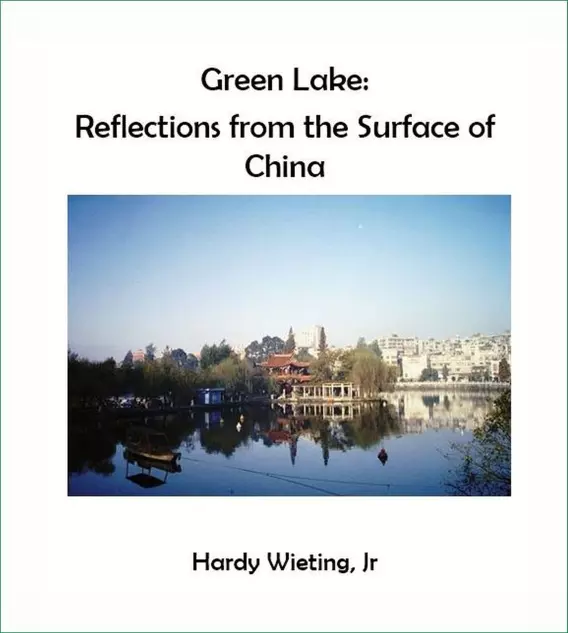
Table of Contents
Home page

Welcome to a journey, riding webbook or ebook. We alternate between roughly chronological "feet on soil" chapters and "nose in books" chapters. The introductory web posting
of the first two chapters is in full. Click Additional for other postings. The complete ebook, sans ads of course, is available now for purchase:
Click here
